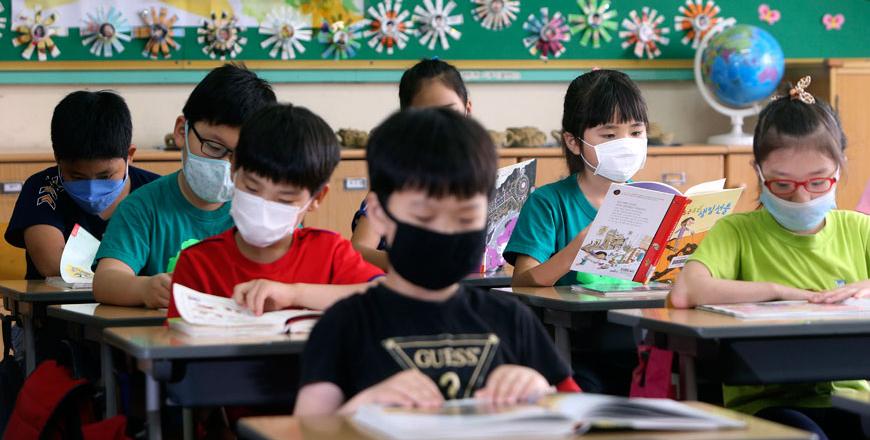You are here
South Korea fights to contain MERS outbreak, considers tough measures
By Reuters - Jun 01,2015 - Last updated at Jun 01,2015

An unidentified Chinese tourist wearing a mask as a precaution against the Middle East Respiratory Syndrome virus visits Gyeongbok Palace in Seoul, South Korea, Monday (AP photo)
SEOUL — South Korea struggled to contain an outbreak of Middle East Respiratory Syndrome (MERS) on Monday as health authorities announced three more cases, bringing the number of infections to 18 in just over 10 days.
Authorities are considering a ban on overseas travel for the nearly 700 people isolated for possible infection after a 44-year-old man broke a voluntary house quarantine last week and flew to Hong Kong and then travelled to mainland China.
The man subsequently tested positive for MERS, China's first confirmed case, setting off alarm bells as health officials traced his footsteps and tested dozens of people who had been in close contact with him.
South Korea's health ministry confirmed three more cases on Monday, but declined to identify the location of any of the cases.
All 18 cases have been linked to a 68-year-old man — who returned from Bahrain via Qatar on May 20 — who were either patients or visitors to the hospital where he was being treated.
Later, a 58-year-old woman who had contact with the first patient but was not tested, died of respiratory failure, a health ministry official said, adding that clinical tests were being conducted to verify her cause of death.
First identified in humans in 2012, MERS is caused by a coronavirus from the same family as the one that triggered China's deadly 2003 outbreak of Severe Acute Respiratory Syndrome. There is no cure or vaccine.
The World Health Organisation put the total number of cases globally at 1,150 with at least 427 related deaths.
It said last week there had been no sustained human-to-human spread and that it was not recommending screening of passengers or that travel or trade restrictions be imposed on South Korea.
In South Korea, one elderly patient who had a history of kidney ailment was in a serious condition, with weak vital signs requiring him to be on cardiac and respiratory support, the head of the Korean Society of Infectious Diseases, Kim Woo-joo, told a briefing.
Related Articles
SEOUL — A joint South Korean-World Health Organisation (WHO) mission studying an outbreak of Middle East Respiratory Syndrome (MERS) recomme
The Health Ministry on Saturday recorded the ninth case diagnosed with the Middle East Respiratory Syndrome (MERS) coronavirus.
A 69-year-old has been diagnosed with the Middle East Respiratory Syndrome (MERS) coronavirus in Jordan.

















